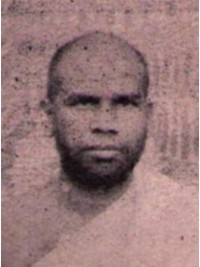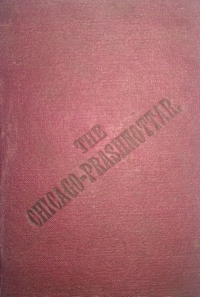11. Question:
God has created the universe out of his own power or nature. The material cause of the world is therefore God's power.Answer:
If it is separate from Him, is it sentient or insentient?
If insentient, then is it eternal or non-eternal?
If eternal, then your statement that there was only one God before the creation and no other existence is like the statement of a mad man. It is self-contradictory. If you call that power non-eternal, then its material cause must be another power of God which must also have another power for its cause and so on and so forth. This is an argument in a circle and involves a fallacy. If you call it a sentient power, then is it eternal or non-eternal? In both the cases the above two fallacies i.e., self-contradiction and reasoning in a circle arise. If you consider this power non-separate from God, then all things are God. Everything becomes God i.e. good and evil; heaven and hell; merit and demerit; virtue and vice; the high and the low; the king and the beggar; the virtuous and the wicked; the ruler and the ruled; a good man and a thief; the happy and the unhappy &c. &c.
If that is the case, then instead of creating the universe He has brought on His own ruin. This is the first stigma on God.
12. Question:
God is omnipotent; hence he can produce the universe without any material cause.
Answer:
This answer of yours cannot satisfy any wise man, because it is totally unsupported by any proof. That which has no material cause can never come into existence, for instance ass' horns. Argument like this is liable to weaken, rather than strengthen your position. If you insist upon the things of your own imagination out of prejudice you can never be considered a critic. Your statement involves a fallacy of mutual dépendance. If one pure existence of God not depending upon any material cause before the creation be premised, then only can He be proved Omnipotent, and when He is proved Omnipotent He can be said to have created the universe without any material cause. Until one of these two propositions is established, the other cannot be proved. This is reasoning in a circle. The two propositions are either to prove the creator of the universe or to prove God Omnipotent. When He is proved omnipotent, then can He be proved to have created the universe without any material cause. When He is proved to be the creator of the universe, then only can He be proved omnipotent. Is not this reasoning in a circle?
13. Question:
The existence of God is self-evident.
Why do you not consider Him as the creator of the universe?Answer:
If the creation of the universe by God is proved self-evident, then none can have any dispute about it; and our controversy about God may also cease because what is self-evident admits of no argumentation. But that the presence of God cannot be known by direct perception, has been laid down in your Vedas.[1]
This Vedic verse evidently shows that God cannot be cognised by anyone.
14. Question:
How has the world come into existence without a creator? This inferential proof establishes that God is the creator of the world - Why do you not accept this?
Answer:
We shall refute this argument of yours when dealing with the other aspect of God. Although it is not proved that there was only one God before the creation without any material causes, even then we proceed on and ask whether these souls when created by God were Pure, (2) whether they were endowed with merits, (3) whether they were impregnated with sins, (4) whether they were mixed with virtue and sin together, (5) whether they had more sin and less virtue and (6) whether they had more virtue and less sin.
If you maintain the first position, then all the souls in the world ought to be pure and all the injunctions of the scriptures regarding them ought to be futile. Besides, the author of these scriptures is also proved to be unwise; for it was useless to compose these scriptures for the guidance of the souls which were already pure. No sensible man washes a clean cloth; if he Joes so, he is a fool. This shows that if these scriptures were put together for the guidance of pure souls, the author thereof wa3 not a wise man.
15. Question:
God created all the souls pure, but they, out of their own will, did good or bad actions. How is God to be blamed for this?
Answer:When Ishvara did not endow the souls with a power to do good or evil actions, how have they then come into possession of that power?
 Shrimat Vijyasandsuri
Shrimat Vijyasandsuri
